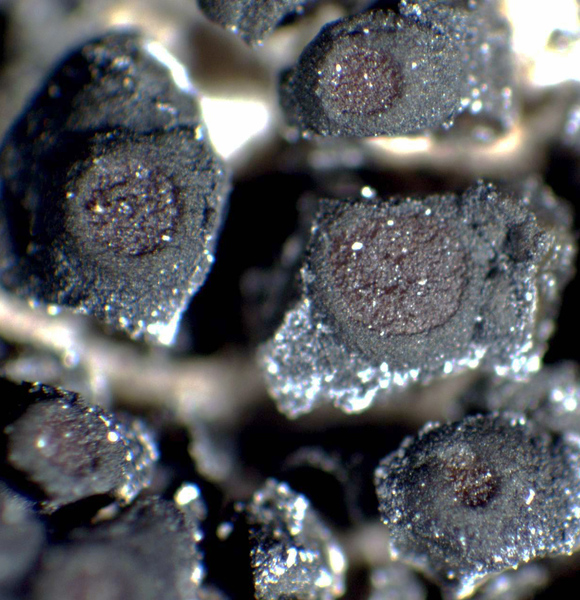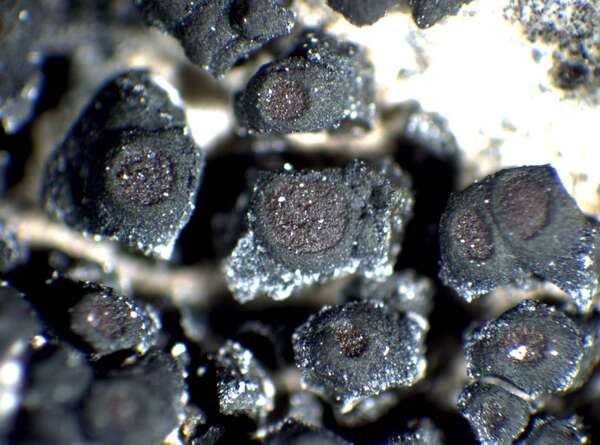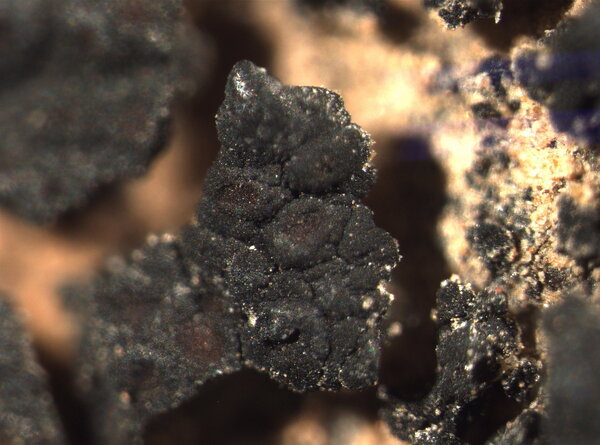Anema prodigulum (Nyl.) Henssen
in Henssen & Jørgensen., Lichenologist, 22: 139, 1990. Basionym: Omphalaria prodigula Nyl. - Flora, 62: 353, 1879.
Synonyms: Thyrea prodigula (Nyl.) Zahlbr.
Distribution: N - Frl (TSB 20352). S - Si (Nimis & al. 1994).
Description: Thallus squamulose, homoiomerous, slightly gelatinous when wet, in section with a loosely reticulate network of thin hyphae enclosing groups of cyanobacterial cells. Squamules black, densely crowded, 0.2-1 mm diam., flattened, with an entire to irregular margin, usually epruinose, not isidiate, smooth to weakly sulcate, adhering to the substrate by a central, lax bundle of rhizohyphae, the sterile ones nodulose, the fertile ones more or less club-shaped. Apothecia 1-3 per squamule, at first immersed and perithecioid but soon expanded and clearly lecanorine, 0.2-0.7 mm across, with a dark reddish brown, flat to convex disc, and a distinct thalline margin. Proper exciple poorly developed, narrow, 15-20 µm wide, of densely packed, parallel hyphae; epithecium yellowish, 5-10 µm high; hymenium colourless, 90-110 µm high, the hymenial gel I+ blue; paraphyses 1.5-3 µm thick, the terminal cell much swollen and to 6 thick; hypothecium pale yellow, 30-60 µm high in central part. Asci 8-spored, broadly clavate, thin-walled, with a distinct amyloid outer cap, but no apical dome, Peccania-type. Ascospores 1-celled, hyaline, ellipsoid, 10-16 x 6-9 µm, the wall 1-2 µm thick. Pycnidia immersed, globose to pyriform, unilocular. Conidia hyaline, ellipsoid, 2-4 x 1-2 µm. Photobiont cyanobacterial, chroococcoid, of a few, 6-15 µm wide cells often penetrated by haustoria and surrounded by a gelatinous sheath which is colourless in inner parts, yellowish brown near the thallus surface. Spot tests: all negative. Chemistry: without lichen substances. Note: on sunny seepage tracks of calcareous rocks, mostly below the montane belt.
Growth form: Crustose
Substrata: rocks
Photobiont: cyanobacteria, coccaceous (e.g. Gloeocapsa)
Reproductive strategy: mainly sexual
On otherwise dry surfaces with short periods of water seepage after rain
Commonnes-rarity: (info)
Alpine belt: absent
Subalpine belt: absent
Oromediterranean belt: absent
Montane belt: absent
Submediterranean belt: very rare
Padanian area: absent
Humid submediterranean belt: very rare
Humid mediterranean belt: very rare
Dry mediterranean belt: absent

Predictive model
Herbarium samples
Growth form: Crustose
Substrata: rocks
Photobiont: cyanobacteria, coccaceous (e.g. Gloeocapsa)
Reproductive strategy: mainly sexual
On otherwise dry surfaces with short periods of water seepage after rain
Commonnes-rarity: (info)
Alpine belt: absent
Subalpine belt: absent
Oromediterranean belt: absent
Montane belt: absent
Submediterranean belt: very rare
Padanian area: absent
Humid submediterranean belt: very rare
Humid mediterranean belt: very rare
Dry mediterranean belt: absent

Predictive model
| Herbarium samples |
 INDEX FUNGORUM
INDEX FUNGORUM
 GBIF
GBIF
 DOLICHENS
DOLICHENS





